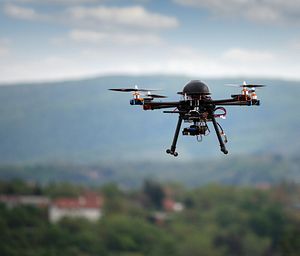Your Friday China links:
The New York Times’ Sinosphere blog reports that China has a new weapon for fighting terrorist activity in Xinjiang: drones. Citing a report in People’s Daily, Sinosphere writes that Xinjiang’s anti-terrorist command has asked for technical experts to operate drones in Xinjiang. The China Aerospace Science and Technology Corporation has already sent a team to Kashgar Prefecture, a hotspot for recent incidents of unrest. The drones are reportedly being used “on multiple missions round-the-clock,” with Chinese media reporting they have provided “important intelligence in tracking down and arresting terrorists.”
In addition to using drones in its crackdown on terrorism, China has also flown drones on surveillance missions over the disputed Diaoyu/Senkaku Islands, which are claimed by China but administered by Japan.
In other news, The Diplomat reported earlier this week on Xi Jinping’s move to cut salaries at China’s state-owned enterprises. South China Morning Post has more details on the story, including reports that the salary cuts could be as large as 50 percent. SCMP also notes that Xi wants to make changes to the management structure at SOEs as the second phase of reforms. Under this plan, government officials working at SOEs would be placed on the board of directors; the actual daily operations of the company would be handled not by bureaucrats but by senior managers recruited from the business world. The move is in line with Xi’s desire to streamline SOEs and make them more economically efficient. It would also prevent SOE executives from enjoying the double perks of high-level government positions and the massive salaries enjoyed by senior executives.
Elsewhere, China’s recent crackdown on drug use has netted several celebrities, with the latest being Jackie Chan’s son, Jaycee. However, there’s been some discussion among Chinese netizens who feel that marijuana use (what Jaycee was busted for) is not deserving of such a harsh response. Some have even called for the drug to be legalized — and the discussion was apparently popular enough to warrant a scathing put-down by Chinese state media. The BBC does a round-up of the relevant articles in Chinese media, including People’s Daily and the Beijing Times. The articles warn that marijuana is still dangerous, and that legalizing it “will be disastrous for the whole society.”
Finally, in case you missed it, the latest issue of The Economist has a major feature on China. The piece argues, as others have done, that Chinese leadership and citizens alike yearn to return to the historical levels of greatness China enjoyed prior to the 19th century — what Xi Jinping has called the “great rejuvenation of the Chinese nation” or simply the “Chinese dream.” It also traces a bit of Chinese history, with a special focus on the intellectual discord that came with China’s “century of humiliation” to place China’s modern-day nationalism in context.
However, The Economist argues that China doesn’t know how to go about winning international respect, especially without disrupting the conditions that have allowed for China’s massive economic growth over the past 30 years. The article explores the various tensions facing China in its quest for great power status, and is well worth a read.

































